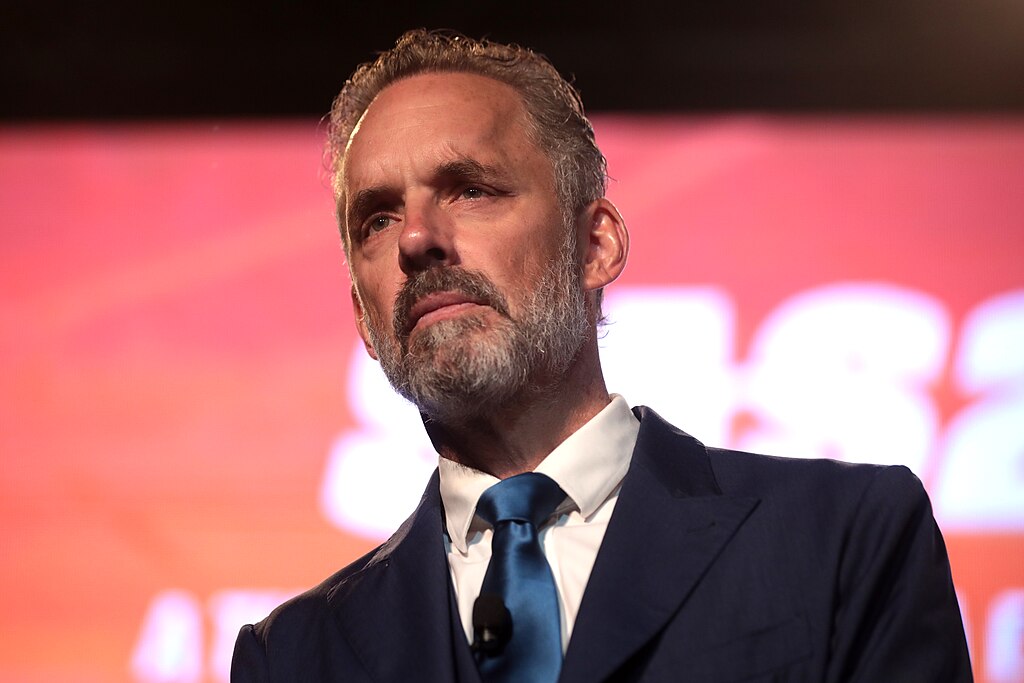Renowned Canadian psychologist and outspoken public figure Dr. Jordan Peterson recently made waves by declaring his support for former President Donald Trump, expressing that he would vote for him if he had the right. Peterson, known for his unfiltered views on a range of social and political issues, hinted at his hypothetical vote during a recent interview. His remark, “I’m Canadian, forgive me for that,” quickly attracted significant online attention, sparking reactions from both critics and supporters.
Peterson, whose career as a clinical psychologist has led to a global following, especially among young conservatives, has previously spoken out about his concerns with progressive politics and what he describes as a culture of censorship in Western society. Now, his hypothetical endorsement of Trump has become one of his boldest statements yet, especially considering his status as a Canadian citizen who cannot vote in U.S. elections.
“If I had the right to vote in the United States, I’d vote for Trump. I think he’s standing up against the excesses of the left,” Peterson stated during the interview, adding a caveat that quickly caught attention: “I’m Canadian, forgive me for that.”
Peterson’s words come at a time when Trump remains a polarizing figure in global politics. To his followers, Trump is seen as a champion for free speech and a voice against political correctness—two issues central to Peterson’s advocacy. However, critics argue that Peterson’s support for Trump reinforces what they view as dangerous populist ideals that overlook the complexities of governance.
Peterson went on to explain that his hypothetical support for Trump stems not from personal admiration but from a broader concern over progressive policies in Western democracies, which he believes stifle free thought and open discourse. “There’s something about Trump’s approach that rattles the establishment,” he explained, “and in a society where free speech is increasingly under fire, that’s something worth noting.”
Reactions online were swift and varied. Some expressed surprise that Peterson, despite his Canadian citizenship, would make such an endorsement, while others saw it as a natural extension of his long-standing positions. “It’s refreshing to see Peterson acknowledge the importance of standing up for free speech, even if it means supporting a divisive figure like Trump,” commented one Twitter user.
Others, however, were quick to criticize. “Peterson endorsing Trump is exactly what you’d expect from someone who constantly argues against progress,” said one critic on social media.
Peterson’s endorsement, while largely symbolic due to his Canadian nationality, resonates with many conservatives in the United States and abroad who view him as a strong advocate for personal responsibility and free expression. This hypothetical support for Trump has reignited debates around Peterson’s influence and whether his vocal opposition to progressive ideologies aligns with the current conservative movement in the U.S.
Whether this statement will influence Trump supporters or detractors remains to be seen. However, Peterson’s hypothetical endorsement reinforces his complex stance in modern political discourse, often challenging conventional views. As Peterson himself puts it, “The choice may not be easy, but freedom of expression is worth the fight.”



 Argentina Senate Approves Bill to Lower Age of Criminal Responsibility to 14
Argentina Senate Approves Bill to Lower Age of Criminal Responsibility to 14  HHS Adds New Members to Vaccine Advisory Panel Amid Legal and Market Uncertainty
HHS Adds New Members to Vaccine Advisory Panel Amid Legal and Market Uncertainty  UK Accepts U.S. Request to Use British Bases for Defensive Strikes on Iranian Missiles
UK Accepts U.S. Request to Use British Bases for Defensive Strikes on Iranian Missiles  Trump Warns Iran as Gulf Conflict Disrupts Oil Markets and Global Trade
Trump Warns Iran as Gulf Conflict Disrupts Oil Markets and Global Trade  Trump Floats “Friendly Takeover” of Cuba as Rubio Reportedly Engages in Talks
Trump Floats “Friendly Takeover” of Cuba as Rubio Reportedly Engages in Talks  Macron Urges Emergency UN Security Council Meeting as US-Israel Strikes on Iran Escalate Middle East Tensions
Macron Urges Emergency UN Security Council Meeting as US-Israel Strikes on Iran Escalate Middle East Tensions  Trump Says U.S. Attacks on Iran Will Continue, Warns of More American Casualties
Trump Says U.S. Attacks on Iran Will Continue, Warns of More American Casualties  Pakistan-Afghanistan Tensions Escalate as Taliban Offer Talks After Airstrikes
Pakistan-Afghanistan Tensions Escalate as Taliban Offer Talks After Airstrikes  Middle East Conflict Escalates After Khamenei’s Death as U.S., Israel and Iran Exchange Strikes
Middle East Conflict Escalates After Khamenei’s Death as U.S., Israel and Iran Exchange Strikes  Russia Signals Openness to U.S. Security Guarantees for Ukraine at Geneva Peace Talks
Russia Signals Openness to U.S. Security Guarantees for Ukraine at Geneva Peace Talks  U.S. Lawmakers Question Trump’s Iran Strategy After Joint U.S.-Israeli Strikes
U.S. Lawmakers Question Trump’s Iran Strategy After Joint U.S.-Israeli Strikes  Germany and China Reaffirm Open Trade and Strategic Partnership in Landmark Beijing Visit
Germany and China Reaffirm Open Trade and Strategic Partnership in Landmark Beijing Visit  Pentagon to Halt Ivy League Programs for U.S. Military Officers Starting 2026
Pentagon to Halt Ivy League Programs for U.S. Military Officers Starting 2026  Israel Launches Fresh Strikes on Iran After Death of Supreme Leader Ayatollah Khamenei
Israel Launches Fresh Strikes on Iran After Death of Supreme Leader Ayatollah Khamenei  U.S.-Israel Strike on Iran Escalates Middle East Conflict, Trump Claims Khamenei Killed
U.S.-Israel Strike on Iran Escalates Middle East Conflict, Trump Claims Khamenei Killed  Zelenskiy Urges Change in Iran After U.S. and Israeli Strikes, Cites Drone Support for Russia
Zelenskiy Urges Change in Iran After U.S. and Israeli Strikes, Cites Drone Support for Russia  Pentagon Leaders Monitor U.S. Iran Operation from Mar-a-Lago
Pentagon Leaders Monitor U.S. Iran Operation from Mar-a-Lago 































